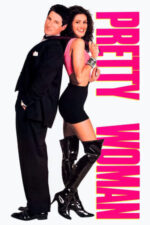The Grind Never Stops? Exploring the Workaholic Archetype on Screen
Okay, let’s talk about something we all know a little too well: the workaholic. It's become almost a badge of honor in our culture – "I live at the office!" – but increasingly, films are starting to peel back the layers and ask why. And more importantly, what does it cost?
It’s fascinating how this archetype has evolved on screen. Think about early depictions of ambition, like those found in classic Hollywood dramas. They often celebrated drive and success, sometimes at any cost. But now, we're seeing a shift – a deeper exploration of the emotional toll that relentless pursuit can take.
Take A’90s Christmas, for example. It’s not just about a lawyer getting a magical do-over; it’s about confronting the loneliness and regret that come from prioritizing career over connection. The film uses this fantastical premise to highlight how easily we let relationships slip away when our lives are consumed by work. It's a gentle nudge, reminding us that even seemingly successful people can feel profoundly empty.
Then you have something like Nutcrackers, which takes a completely different approach. Here, the workaholic – Mike – is forced out of his comfort zone and into a situation where he has to prioritize family. It’s less about regret and more about rediscovering what truly matters. I remember watching this with my sister; we both realized how easy it is to get caught up in our own ambitions and forget the people who need us most.
And let's not forget films that use the workaholic as a springboard for something completely unexpected, like Frankie Freako. Conor Sweeney’s rigid existence gets hilariously disrupted by goblins! It’s absurd, yes, but it also serves to satirize the absurdity of clinging so tightly to control and order. It's a reminder that sometimes, you need a little chaos in your life to shake things up.
Even romantic comedies aren't immune to this exploration. Just the Way You Are cleverly uses the premise of matchmaking to examine how ambition can erode even the strongest relationships. It’s not about demonizing success; it’s about recognizing that balance is crucial. And Disaster Holiday, with its road trip backdrop, beautifully illustrates a father's journey towards reconnecting with his children after years of prioritizing work.
Finally, films like Tokyo Shaking offer a particularly poignant perspective. Alexandra’s dilemma – duty versus family – becomes incredibly powerful against the backdrop of a real-world crisis. It forces us to confront the question: what do we truly value when everything is on the line?
Ultimately, these films aren't just about judging workaholics; they're about prompting reflection. They ask us to consider our own priorities and examine whether the relentless pursuit of success is truly fulfilling. Are we building a life we love, or simply chasing an elusive ideal? It’s a question worth pondering – especially over a cup of coffee (and maybe a little less work!).






































